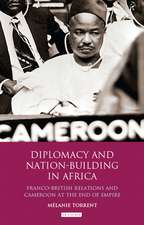The Chiga of Uganda
Editat de David Kriegeren Limba Engleză Paperback – 29 ian 2018
The Chiga of Uganda provides a special insight into a culture at that time (1933) still intact under the British protectorate. It is for the most part a picture of life as it was then still being lived. Where significant changes were already taking place, the various changes are discussed in the contexts in which they seemed relevant in social structure, kinship, marriage, economics, social control, religion, and education.
What makes this edition unique is the new segment on material culture. This delves into Chiga patterns of food supply and preparation, horticulture, fire and heating, water supplies, cattle raising, hunting, fishing, and problems related to shelter, clothing, and hygiene. Two new special sections deal with tools and utensils, and, no less important, the physical skills and motor habits of the people. Edel's concrete yet wide-ranging descriptions provide an irreplaceable insight into a people and a culture at a unique point in world and colonial history.
The new introduction, written by Abraham Edel, provides a special sort of insight, drawing heavily upon the correspondence that May Edel wrote at the time. The introduction shows how the clouds of war and Nazism in Europe at the time were already changing the character and context of anthropology no less than every other area of human endeavor. A final new aspect of The Chiga of Uganda is May Edel's last reflections focusing on African tribalism, which turns out to be not all that different from ethnic and national rivalries in the Western world. This book will be indispensable to anthropologists, Africanists, and historians.
| Toate formatele și edițiile | Preț | Express |
|---|---|---|
| Paperback (1) | 416.22 lei 6-8 săpt. | |
| Taylor & Francis – 29 ian 2018 | 416.22 lei 6-8 săpt. | |
| Hardback (1) | 1007.36 lei 6-8 săpt. | |
| Taylor & Francis – 31 dec 1995 | 1007.36 lei 6-8 săpt. |
Preț: 416.22 lei
Nou
Puncte Express: 624
Preț estimativ în valută:
79.66€ • 82.10$ • 67.26£
79.66€ • 82.10$ • 67.26£
Carte tipărită la comandă
Livrare economică 01-15 martie
Preluare comenzi: 021 569.72.76
Specificații
ISBN-13: 9781138515505
ISBN-10: 1138515507
Pagini: 306
Dimensiuni: 152 x 229 x 15 mm
Greutate: 0.45 kg
Ediția:2nd edition
Editura: Taylor & Francis
Colecția Routledge
Locul publicării:Oxford, United Kingdom
ISBN-10: 1138515507
Pagini: 306
Dimensiuni: 152 x 229 x 15 mm
Greutate: 0.45 kg
Ediția:2nd edition
Editura: Taylor & Francis
Colecția Routledge
Locul publicării:Oxford, United Kingdom
Cuprins
1: Introduction; 2: Social Structure; 3: Kinship; 4: Marriage; 5: Economics; 6: Social Control; 7: Religion; 8: Education; 9: Food and Its Acquisition; 10: Coping With the Environment; 11: Physical Skills and Motor Habits; 12: African Tribalism: Some Reflections on Uganda; Abahesi Lands; Diagram showing schematically how lineage membership is traced All are of the Abajura
Descriere
The special needs of women with disabilities have been disregarded in a wide variety of vital areas. Issues pertain to women as wives and mothers. Studies of the effects on female sexuality of such conditions as renal disease and diabetes are lacking, though the sexual functioning of men with these diseases has been researched. On the economic front, the Federal-State Vocational Rehabilitation system and the regulations concerning disability benefits under Social Security provide less adequately for women than for men. Hopefully, this volume will raise the consciousness of its readers to the special status of women with disabilities as a minority group experiences multiple sources of discriminations.













